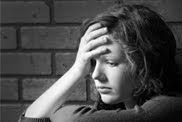There is an excellent letter in today's Irish Times from Bernadette Goulding of Women Hurt.
Sir, – Mary Favier of Doctors for Choice (Opinion, February 25th) raises the absence of the voices of post-abortive Irish women at the recent Oireachtas hearings on abortion. As an Irish woman who had an abortion, I wish to raise a voice that is often ignored, that is the voice of the thousands of women who have been deeply hurt by their abortion.I know from my own experience and from working with other women who have suffered after abortion that the grief is nearly always hidden.There is no body, no funeral, no graveside, no family and friends to grieve your loss. I regularly meet women who are suffering serious mental trauma after an abortion. People in favour of abortion sometimes blame this on social, cultural or religious conditioning.However, I have found the same suffering in many other countries where I have worked with post-abortive women.I, and women like me, would be failing mothers, fathers, medical professionals, legislators, and society in general if we did not share our experience of abortion and how it impacted so negatively on our lives. We are not women crying over “products of conception”. We are crying over the loss of our babies, the children that will never sit at our dinner table, never have a birthday party or hold their own child.Abortion damages women and ends the life of an unborn child. Women like me feel invisible in this debate and feel ignored by many of the women’s groups that are supposed to represent all women. The denial surrounding abortion regret is something that we need to deal with as a society and the voices of women who have experienced abortion and suffered as a result are voices that must be consulted as this debate continues. – Yours, etc,BERNADETTE GOULDING,
Women Hurt,
Sussex Road, Dublin 4.




